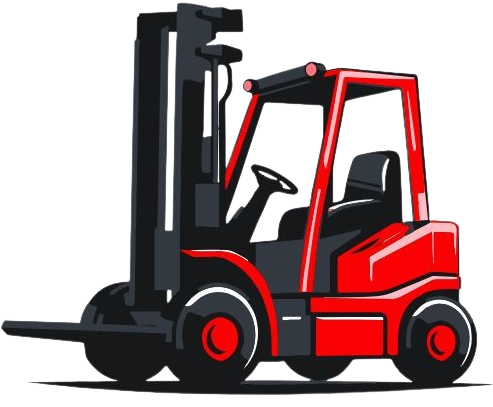Introduction to Forklift Rentals
Forklifts are indispensable in various industries, from construction to manufacturing and warehousing. However, not every business needs to purchase a forklift outright. Forklift rentals offer a flexible solution for companies that require temporary access to this equipment.
Benefits of Forklift Rentals
Cost-effectiveness
Renting a forklift can be significantly cheaper than buying one outright, especially for short-term projects or seasonal needs. It eliminates the upfront investment and ongoing maintenance costs associated with ownership.
Flexibility in Usage
Renting allows businesses to adjust their equipment needs according to fluctuations in demand. Whether it’s for a single day or an extended period, forklift rentals provide the flexibility to scale up or down as required.
Access to Modern Equipment
Rental companies often maintain a fleet of well-maintained, up-to-date forklifts. By opting for rentals, businesses can access the latest models equipped with advanced features without the financial commitment of purchasing.
Types of Forklift Rentals
Daily Rentals
Ideal for short-term projects or one-off tasks, daily rentals offer maximum flexibility. Businesses can rent a forklift for a specific day or even a few hours, paying only for the duration of use.
Weekly Rentals
Weekly rentals are suitable for projects spanning several days or a full week. This option provides a balance between flexibility and cost-effectiveness, allowing businesses to save compared to daily rentals.
Monthly Rentals
For longer-term projects or ongoing needs, monthly rentals offer the most economical solution. Businesses can secure a forklift for an extended period, enjoying a lower daily rate compared to shorter rental terms.
Factors to Consider Before Renting a Forklift
Before choosing a forklift rental, businesses should assess several factors to ensure they select the most suitable option.
Duration of Need
Consider the duration for which the forklift will be required. Short-term projects may benefit from daily or weekly rentals, while monthly rentals are better suited for extended periods.
Type of Work
Evaluate the specific tasks the forklift will be used for, such as indoor or outdoor operations, heavy lifting, or specialized applications. Choose a forklift model that meets the requirements of the job.
Budget Constraints
Set a budget for the rental and consider any additional costs, such as delivery fees or insurance. Compare quotes from multiple rental companies to find the best value for money.
Maintenance and Support
Inquire about the maintenance and support services provided by the rental company. Ensure that the forklift is well-maintained and that assistance is readily available in case of any issues.
How to Rent a Forklift
Renting a forklift involves several steps to ensure a smooth and hassle-free process.
Research and Compare Rental Companies
Start by researching reputable forklift rental companies in your area. Compare their services, rates, and customer reviews to make an informed decision.
Request for Quotes
Contact multiple rental companies and request quotes based on your specific requirements. Compare the pricing and terms offered by each company to find the most competitive option.
Review Rental Terms and Conditions
Carefully review the rental agreement, including terms and conditions, insurance coverage, and liability provisions. Clarify any doubts or concerns before signing the contract.
Schedule Delivery and Pickup
Coordinate with the rental company to schedule the delivery and pickup of the forklift. Ensure that the equipment arrives on time and is collected promptly after use.
Safety Tips for Forklift Operators
Safety should always be a top priority when operating a forklift to prevent accidents and injuries.
Proper Training and Certification
Ensure that all forklift operators are properly trained and certified to operate the equipment safely. Provide ongoing training and refresher courses as needed.
Regular Equipment Inspections
Inspect the forklift before each use to check for any signs of damage or malfunction. Address any issues promptly and avoid using the equipment if it is not in optimal condition.
Safe Loading and Unloading Procedures
Follow recommended guidelines for loading and unloading materials to prevent tipping or shifting of the load. Secure the load properly and use caution when maneuvering in confined spaces.
Awareness of Surroundings
Stay alert and aware of your surroundings at all times while operating a forklift. Watch out for obstacles, pedestrians, and other vehicles to avoid collisions and accidents.
Industries That Benefit from Forklift Rentals
Various industries benefit from the flexibility and cost-effectiveness of forklift rentals.
- Construction: Forklifts are essential for lifting and moving heavy materials on construction sites, such as pallets of bricks or lumber.
- Warehousing and Logistics: Forklifts streamline the process of loading and unloading goods in warehouses and distribution centers, improving efficiency and productivity.
- Manufacturing: Forklifts play a crucial role in manufacturing operations, transporting raw materials and finished products throughout the facility.
Conclusion
Forklift rentals offer businesses a cost-effective and flexible solution for their material handling needs. By carefully considering factors such as rental duration, budget, and equipment requirements, companies can maximize the benefits of forklift rentals while ensuring safety and efficiency in their operations.
